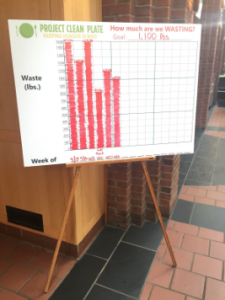-Seamus Crowley ‘18
In the early hours of November 9th Donald Trump won a long election battle to become the 45th president of the United States. Now, the results of this historic election will have many implications, affecting everything from our nation’s relationships with other countries to the fate of the supreme court and their precedent-setting decisions. Of all the things that will be impacted by this abrupt shift in the governance of our nation, the treatment of the environment is certainly one of them. Putting aside political affiliations and opinions momentarily for the sake of recognizing fact, it is important to realize the implications that a Trump presidency has for our natural environment, both on a domestic and international scale.
While Donald Trump has not come out with any full-fledged policies regarding the environment since becoming president-elect of the United States, he has made numerous comments along the campaign trail that are indicative of what his plans may be. The short answer is that, under a Trump Presidency, the environment now faces an extreme threat from an exceptionally radical policy stance, the consequences of which have not been seen in this country for decades.
Regarding climate change, the most notable part of Trump’s plan is that he very clearly doesn’t believe it exists. More specifically, he believes that climate change is a hoax created by the Chinese government as part of an economic scheme1. Furthermore, he wants to remove the United States from the Paris climate deal, effectively eliminating commitments to reducing the amount of greenhouse gas the country emits1. With Trump as president, the emissions for the U.S. are expected to rise, rather than fall as they have been, on average, since before 20081.
On the topic of domestic policies, Trump plans to limit the power of, if not completely eliminate, the Environmental Protection Agency while in office1. If he were to be successful in this endeavor, regulations on pollution from mercury, smog, and coal ash, among many other toxic materials, would go by the wayside resulting in a less healthy planet and population1. Trump also plans on striking down the Clean Power Plan, which President Obama championed during his time in office, thus allowing for more greenhouse gases to be emitted into the atmosphere via the burning of coal1. Trump has also said he wants to stop government spending on clean energy1.
It is clear that when we delve into the specifics of Trump’s plan for not only the environment, but also climate change, a clear and predictable pattern emerges. It is a pattern that aims to undo any progressive environmental programs previously implemented within the nation, while making it easier to do more harm to the planet with limited, if any repercussions. Time will tell in the coming months if Trump’s environmental stances become a reality for the United States.
- http://www.vox.com/2016/11/9/13571318/donald-trump-disaster-climate



 waste. This was a 611 pound drop over the course of the six-week event, meaning that significantly less money is being wasted on food within our dining hall and, more importantly, less waste is going into the landfill.
waste. This was a 611 pound drop over the course of the six-week event, meaning that significantly less money is being wasted on food within our dining hall and, more importantly, less waste is going into the landfill. 